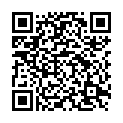|
|
|
| Module code: MBG21-12 |
|
|
4V (4 hours per week) |
|
5 |
| Semester: 3 |
| Mandatory course: yes |
Language of instruction:
German |
Assessment:
Course work (Basic Ehtical Principles)/ Exam (Labor Law: Basics of Individual Rights)
[updated 15.11.2021]
|
MBG21-12 (P311-0182, P311-0183) Management and Professional Pedagogy in Health Care, Bachelor, ASPO 01.10.2021
, semester 3, mandatory course
|
60 class hours (= 45 clock hours) over a 15-week period.
The total student study time is 150 hours (equivalent to 5 ECTS credits).
There are therefore 105 hours available for class preparation and follow-up work and exam preparation.
|
Recommended prerequisites (modules):
MBG21-1 Academic Methodologies and Study Skills I
MBG21-7 Health Care and Nursing Legislation I
[updated 04.12.2025]
|
Recommended as prerequisite for:
MBG21.S.34 Nursing Care Counseling
[updated 30.09.2021]
|
Module coordinator:
Prof. Dr. Thomas Klein |
Lecturer:
RA Barbara Wehlen-Leibrock
Dr. Sindy Lautenschläger
[updated 04.12.2025]
|
Learning outcomes:
Basic Ethical Principles:
After successfully completing this module, students will have the following skills and competencies:
Knowledge and Comprehension:
Students will be able to describe relevant applied ethics fields.
Students will be able to recognize ethical issues/challenges in everyday professional life.
Students will be able to describe ethical decision-making models.
Students will be familiar with the procedure and methods of ethical case discussions.
The Use, Application, and Generation of Knowledge:
Students will be able to work independently on ethical issues from professional practice and develop feasible solutions based on an ethical decision-making model.
Students will be able to present and explain their findings.
Students will be able to moderate an ethical case discussion.
Communication and Cooperation:
Students will be able to actively participate in an ethical discourse in a group and contribute constructively to the group’s learning process.
Students will be able to participate in discussions using ethical principles as a framework.
Students will be able to take the individual and societal value orientations of their social environment into account and integrate them into ethical discourse.
Scientific Self-Concept/Professionalism:
Students will have developed a basic understanding of the ethical dimensions of human action.
Students will be able to justify their decisions on the basis of responsible ethics.
Students will understand value-based and ethically reflective professional practice.
Students will be aware of their own value orientations as the basis for their actions.
Labor Law: Basics of Individual Rights
After successfully completing this module, students will have the following skills and competencies:
The Use, Application, and Generation of Knowledge:
Students will be able to legally navigate their own employment relationship/contract.
Students will be able to solve problems relevant to labor law.
Scientific Self-Concept/Professionalism:
Students will be able to critically reflect on their own learning progress.
[updated 15.11.2021]
|
Module content:
Basic Ethical Principles:
1. Basics of Anthropology
2. Basic concepts of ethics and classical value orientations of action (instrumental rationality (functional orientation); the good life (eudaemonia; individual orientation); justice (general orientation).
3.
Applied ethics (e.g. medical ethics, nursing ethics)
4. Basic ethical positions:
Virtue ethics (Aristotle)
Christian ethics
Deontology (duty-based ethics) (Kant)
Utilitarianism (Singer)
Responsibility ethics (Weber, Jonas)
Philosophy of dialogue (Buber)
5. Ethical decision making
Labor Law: Basics of Individual Rights:
1. Concept, meaning and tasks of labor law
2. Labor law sources
3. Labor law and the constitution
4. The employment relationship
5. Establishing an employment relationship
6. The employee´s obligations
7. The employer´s obligations
8. Defective performance in the employment relationship
9. Special liability features in the employment relationship
10. Terminating an employment relationship
11. Labor court proceedings
[updated 15.11.2021]
|
Teaching methods/Media:
Blended learning
[updated 15.11.2021]
|
Recommended or required reading:
Recommended literature will be announced at the beginning of the course.
[updated 15.11.2021]
|

